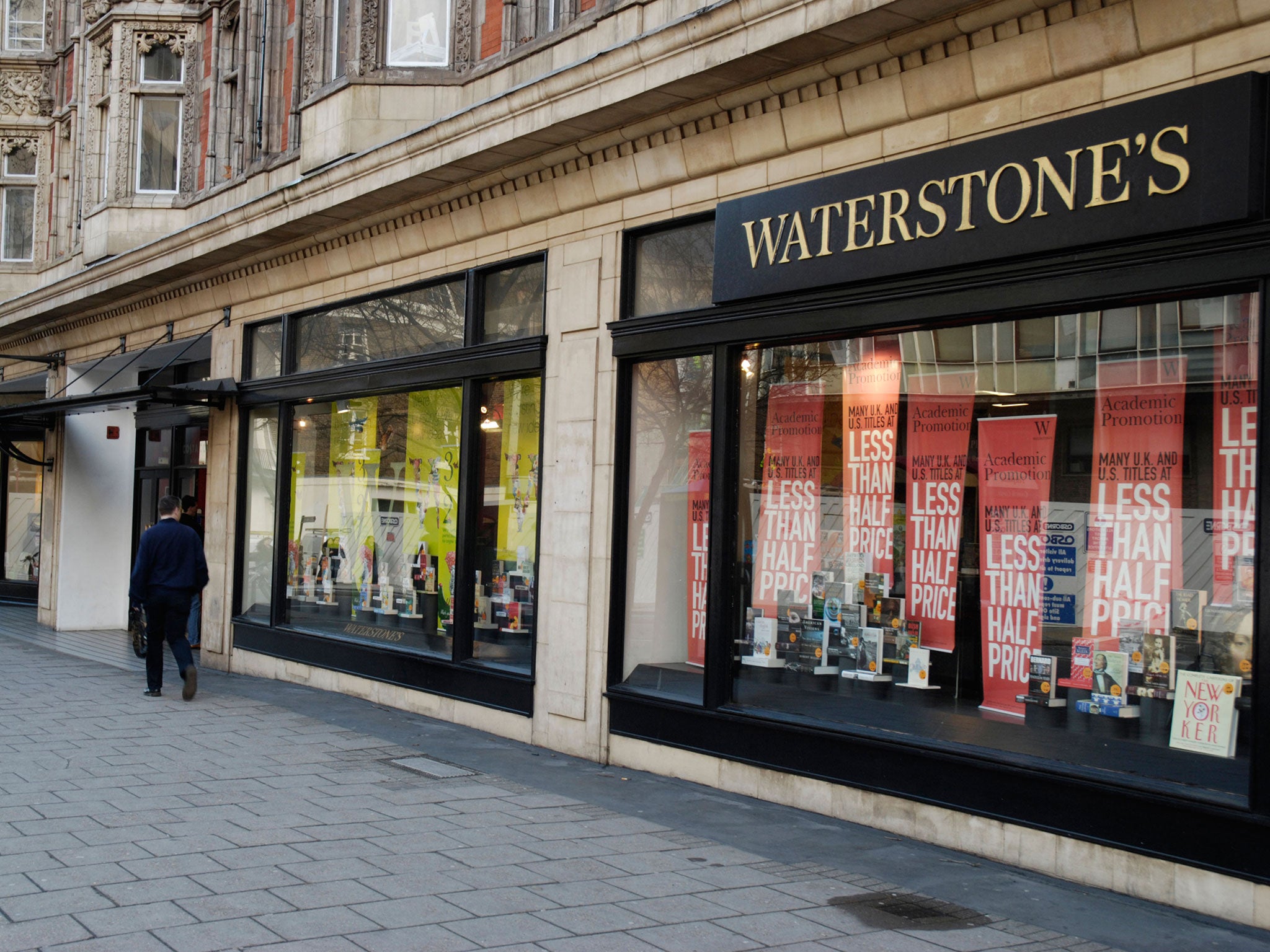Customer loyalty saved Waterstones, now we need to show up for its employees too
We can’t reverse or stop the changes and closures of the retail sector, but we can all do more to show our support for the people who work there for less than the living wage


Your support helps us to tell the story
From reproductive rights to climate change to Big Tech, The Independent is on the ground when the story is developing. Whether it's investigating the financials of Elon Musk's pro-Trump PAC or producing our latest documentary, 'The A Word', which shines a light on the American women fighting for reproductive rights, we know how important it is to parse out the facts from the messaging.
At such a critical moment in US history, we need reporters on the ground. Your donation allows us to keep sending journalists to speak to both sides of the story.
The Independent is trusted by Americans across the entire political spectrum. And unlike many other quality news outlets, we choose not to lock Americans out of our reporting and analysis with paywalls. We believe quality journalism should be available to everyone, paid for by those who can afford it.
Your support makes all the difference.At the end of last year, it became clearer than ever that the British high street is in trouble. Retail faced its worst Christmas since the financial crash, and a further 10,000 shops are predicted to close this year. Few, however, have spoken up for the workers in the sector.
That changed a couple of days ago, when 1,300 authors backed a petition for Waterstones’ booksellers to be paid the living wage.
Sally Rooney, Kerry Hudson and David Nicholls were among the writers who called for the employees to be paid £9-10 per hour.
It was a welcome to show of solidarity for frontline staff. In an open letter, Hudson rightly praised employees for the passion and expertise they bring to the literary industry, adding that she’d spoken to staff who had been forced to choose between bus fares and food on their current rate of pay.
In response to the campaign, Waterstones’ managing director James Daunt said that the chain is “simply not profitable enough to wave the magic wand and shower gold all around”. It’s an argument that stands poorly against someone who clearly makes so much more than the average hourly paid worker.
Paying the living wage also makes sense from a business perspective. The Living Wage Foundation said that 93 per cent who paid the wages had seen benefits in retention and motivation of staff, and company reputation.
Against the dominance of online shopping, Waterstones has inevitably encountered some problems. With 300 stores across the UK it is the only physical high street bookshop chain left in the country, a success that owners put down to its “loyal customers”.
If, then, we broadly accept that the chain’s survival has been down to its customer base, then it can no longer afford to overlook the employees it depends on.
It’s a problem that reflects the retail industry as a whole. The discussion on the demise of the British high street has focused on a fall in consumer spending and the boom in online stores, but not on the future of retail workers.
According to the Resolution Foundation, retail faces much higher redundancies than any other sector. Two in five retail ex-retail staff were unemployed for six months, with younger retail workers at a greater risk of staying out of work for longer. While the industry has seen some improvements in pay, the hourly wage is a third lower than across the workforce as a whole.
Perhaps even more worryingly, workers regularly face threats and abuse. The Suzy Lamplugh Trust found that 66 per cent of retail workers had experienced or witnessed violence or aggression at work.
In spite of its troubles, retail is still the single largest private employer in the UK, and it gave many of us (myself included) our first jobs. Shop work is still subject to stigma, with the sector often depicted as a dull, tedious place to work. However, similarly to Waterstones, HMV closures prompted its current and former workers take to social media show a different side of this: they are not only dedicated employees, but absolute experts in their merchandise.
This is not reserved for these shops alone. From fashion to electronics, every shop has workers who often know what customers want better than the store’s boss will.
We can’t reverse, or stop the changes and closures of the retail sector. Policymakers must urgently look into the effects of high street closures on their communities rather than waiting for another crisis, but we can all do more to show our support for the people who work there.
The high street crisis has shown that we genuinely appreciate shopping in person, and we’re arguably particularly affectionate about bookshops. But if we really care about our shops, the first, and most basic step should be to demand that staff are paid a wage they can live on.
Join our commenting forum
Join thought-provoking conversations, follow other Independent readers and see their replies
Comments